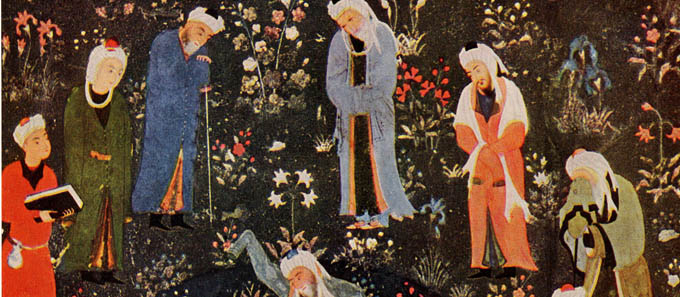
Bîrûn Ottoman Music Workshop Court Music: from Herat to Costantinople
27 March to 1 April 2017, the Fondazione Giorgio Cini Intercultural Institute for Comparative Music Studies is holding the sixth edition of Bîrûn, a series of advanced workshops on Ottoman classical music, directed by Kudsi Erguner, and addressed to professional or semi-professional musicians.
This year’s workshop focuses on the music at the Khorasan courts, and especially works by the composer Abd-al Qader Marâghî (1360?-1435). Compared to the previous editions, there will be two extra scholarships, thanks to the contribution of the Turkish Ministry of Foreign Affairs. The eight scholarship-holders will be selected after an international call for applications for musicians specialised in the various instruments (ney, ûd, tanbûr, kanûn, kemençe, percussions and singing). The participants will then have the opportunity to study pieces composed by Marâghî, along with works attributed to the Timurid
sultan Huseyn Bayqara (1469-1506) and the Persian-speaking poet Molla Jamî (1414-1492). All of these works were saved from oblivions thanks to musicologists such as Rauf Yektâ bey (1871-1935), Refik
Fersan (1893-1965) and Ulvi Erguner (1924-1974). Khorasan (“rising sun” in Persian) is a historic region now divided up between modern-day Iran, Afghanistan, Turkmenistan, Uzbekistan and Tajikistan. Its principal cities, Ghazni, Bukhara and Herat, were once the capitals of various dynasties, such as the Sassanid, Ghaznavid and Timurid. Musically-speaking the area was the cradle of a culture underlying the art music in all the courts in this great Asian region.
From the age of the sultan Mahmud of Ghazna (971-1030) until the end of the Ottoman empire (1923), all the musical traditions from the various courts were so intimately interconnected that today you can make a fascinating journey in musical history from Istanbul to Herat, and from Herat to Baghdad and India.
This historically documented musical heritage was preserved and transmitted by the Ottomans until the 20th century, especially in the capital, Istanbul, while in other Middle Eastern countries it was gradually replaced by popular or regional music.
The workshop will end April 1 at 6 pm with a concert by the Bîrûn ensemble, conducted by Kudsi Erguner, and will be preceded by a study day devoted to Music and Culture from Herat to Constantinople on 21 March. Organised by Giovanni De Zorzi in collaboration with the Department of Philosophy and the Cultural Heritage at Ca’ Foscari University, Venice, the study day will be held in the university premises of the Zattere CFZ.
